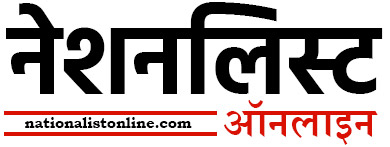RAJESH SINGH
Let none be misled by the compromise which Samajwadi party supremo Mulayam Singh Yadav has hammered out. His son and Chief Minister Akhilesh Yadav and brother and senior party leader Shivpal Yadav are still at loggerheads, though they will not forcefully knock each other down at least until after the 2017 Assembly election. Shivpal is not going to endorse Akhilesh Yadav as the next Chief Minister if the Samajwadi Party returns to power, and Mulayam Singh Yadav is not going to insist on his doing so. That leaves Akhliesh Yadav to fend for himself.
Mulayam Singh Yadav should have seen the crisis coming when he got Akhliesh Yadav on the centre-stage in 2012. Until then, there was just Shivpal Yadav, who lorded over the party while the elder brother ran the Government when the opportunity came. On occasions when the Samajwadi Party was out of power, both Mulayam and Shivpal worked as a team. There was no space for a third one, though Ram Gopal Yadav, another family member, occasionally butted in as an ‘insider’. But he was no replacement for or a threat to Shivpal Yadav. Akhilesh Yadav’s arrival changed the family-political equation.
The astute and street-smart Shivpal Yadav had sniffed the problem back in 2012. He knew that the well-settled two-way arrangement between Mulayam and him was in threat of disruption. This is why he opposed Akhilesh Yadav’s name as a chief ministerial candidate. But Mulayam Singh Yadav, realising that Akhliesh, with his fresh face and baggage-less credentials, can bring victory to the party, chose to take a risk. It turned out to be good for the party and for Akhilesh who became the chief Minister. It wasn’t so good for Shivpal Yadav, who had to now share influence with a leader whom he had raised as a boy whose father was too busy establishing the party and battling for its sustainment. Now, the same “Tipu’ had turned into a potential usurper of his authority.
Mulayam Singh Yadav should have seen the crisis coming when he got Akhliesh Yadav on the centre-stage in 2012. Until then, there was just Shivpal Yadav, who lorded over the party while the elder brother ran the Government when the opportunity came. On occasions when the Samajwadi Party was out of power, both Mulayam and Shivpal worked as a team. There was no space for a third one, though Ram Gopal Yadav, another family member, occasionally butted in as an ‘insider’. But he was no replacement for or a threat to Shivpal Yadav. Akhilesh Yadav’s arrival changed the family-political equation.
Akhilesh Yadav is a grown-up, and for all his deference to his father and uncle, he will in all likelihood continue the battle for supremacy. So, the people of Uttar Pradesh can look forward to more fireworks in the months to come.
The disruption is not unique to the Samajwadi Party. In many instances here and across the globe, ‘three’ has become a crowd in a family of politicians. With Jawaharlal Nehru at the helm, it was Indira Gandhi who had his ears; with Indira Gandhi as the supreme leader of the Congress, Sanjay Gandhi brooked no challenge. But after Sanjay died in a tragic air crash, problems began. Indira Gandhi leaned on Rajiv Gandhi for political support, and Sanjay Gandhi’s widow Maneka Gandhi began to be sidelined. A tiff broke out soon enough and Maneka Gandhi parted company with her mother-in-law. There was no way Maneka Gandhi and Rajiv Gandhi could share the same political pie.
In the present, there is the duo of Sonia Gandhi and Rahul Gandhi that controls the Congress. If a third family member were to arrive in the equation, the arrangement will face strain, if not now then later.
Neighbouring Pakistan too has suffered from the ‘three is a crowd’ phenomenon. Benazir Bhutto was the unquestioned second-in-command to her father Zulfikar Ali Bhutto and the supposed inheritor of his political legacy. Had she been alone, there would have been no problem. But her brothers were politicians in their own right and pushed themselves in the public limelight. Family relationships got bitter; there were accusation of murder too; and the bitterness was carried forward in the succeeding family generation.

In Bangladesh, Begum Khaleda Zia and Sheikh Hasina were lucky to be the chosen ones without facing too many of the family challenges. That is why they have reached where they are and have been able to sustain their influence over the decades. The same went for Mahinda Rajapaksa and his brother Gotabhaya Rajapaksa. As President of Sri Lanka, Mahinda Rajapaksa allowed his brother a free hand in various administrative matters. There was no third family member to destabilise Gotabhaya’s influence.
Returning home, how can one forget the drama in M Karunanidhi’s family? Elder son MK Alagiri always believed himself to be his father-and-DMK supremo’s successor. That was before the patriarch discovered the politician in the other son, MK Stalin. Soon enough, open fights broke out between the two brothers. Eventually Alagiri was shunted away from all decision-making and Stalin virtually anointed the successor. But the last word is yet to be heard. There is the daughter and Member of Parliament Kanimozhi, who wouldn’t mind a larger say in the party.
Almost as an exception, Lalu Prasad’s family is coasting along pretty well. Two of his sons are Ministers in the Nitish Kumar Government, while a daughter is busy creating her own niche in the party. Lalu’s wife Rabri Devi has returned to the kitchen where her competence is undeniably greater than in the Chief Minister’s chair. But that’s for now. If Lalu’s party wins Bihar on its own, the race of primacy between the two brothers will come to the fore.
(The writer is editorial director of nationalistonline.com, English)
